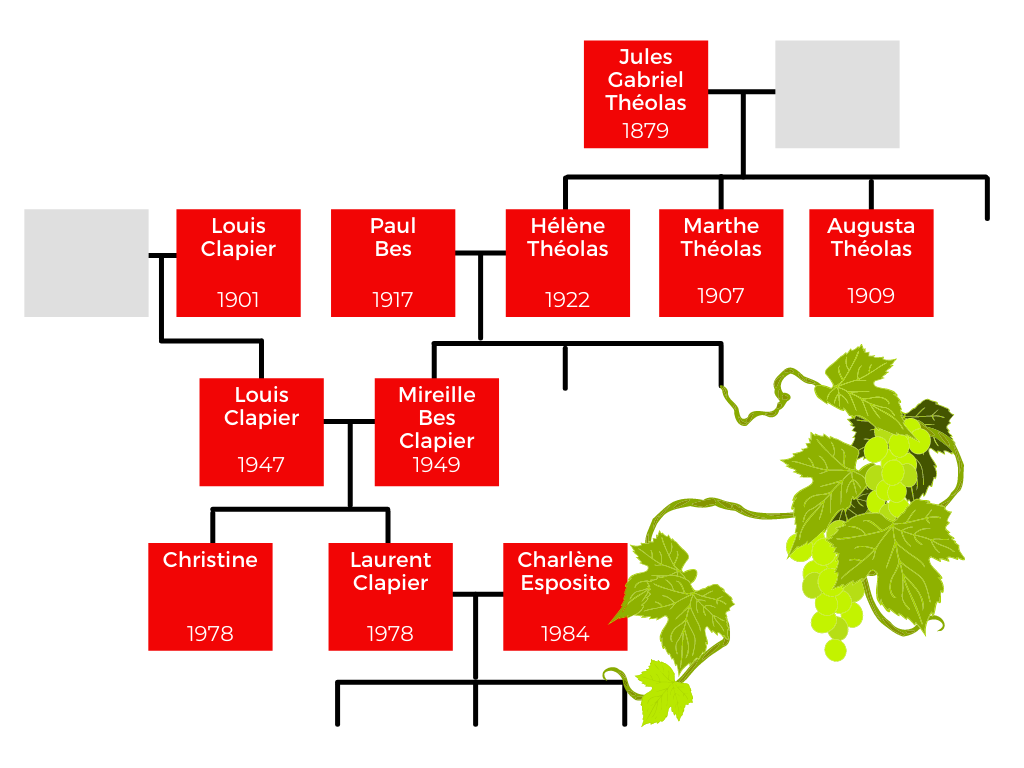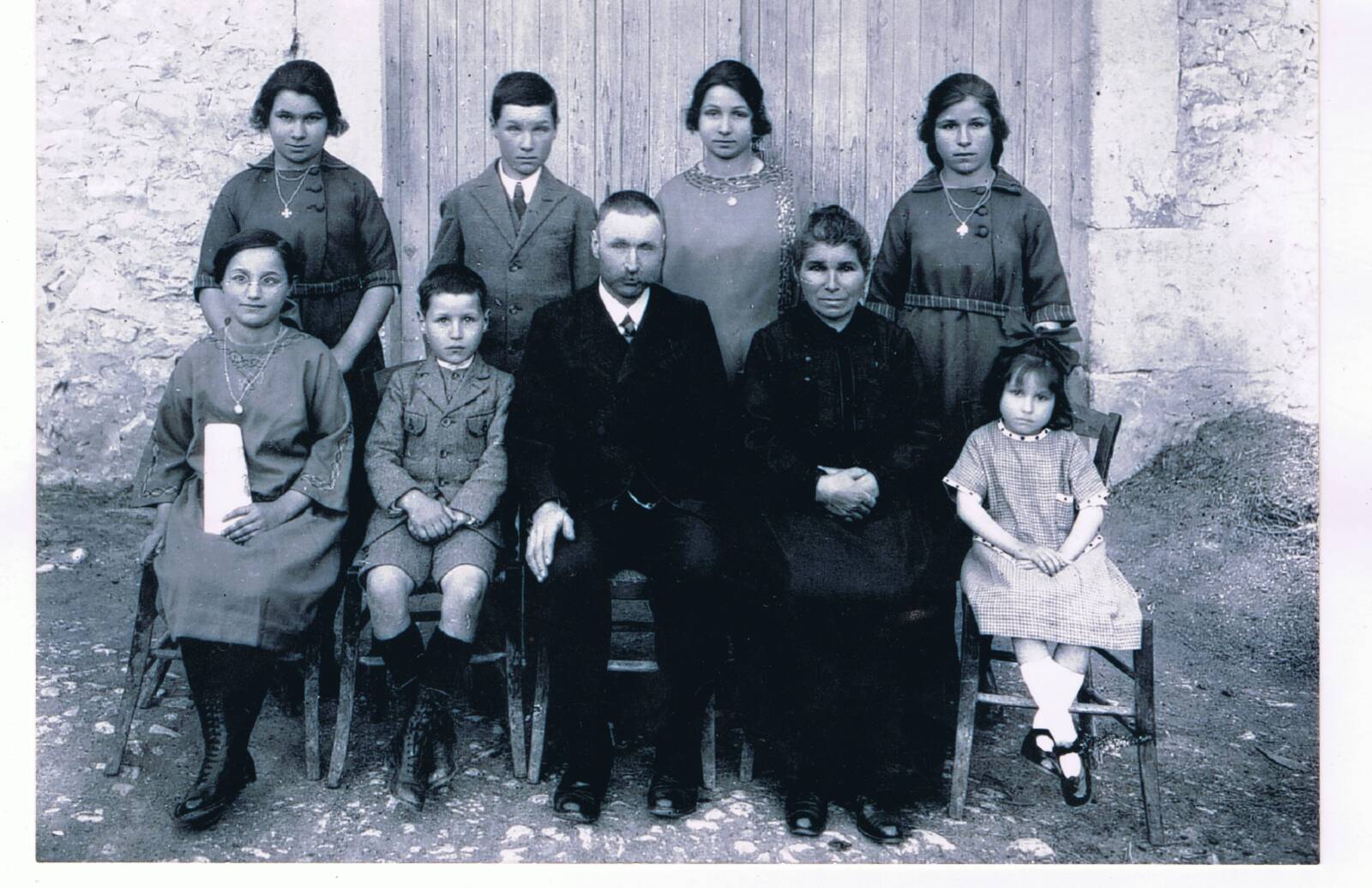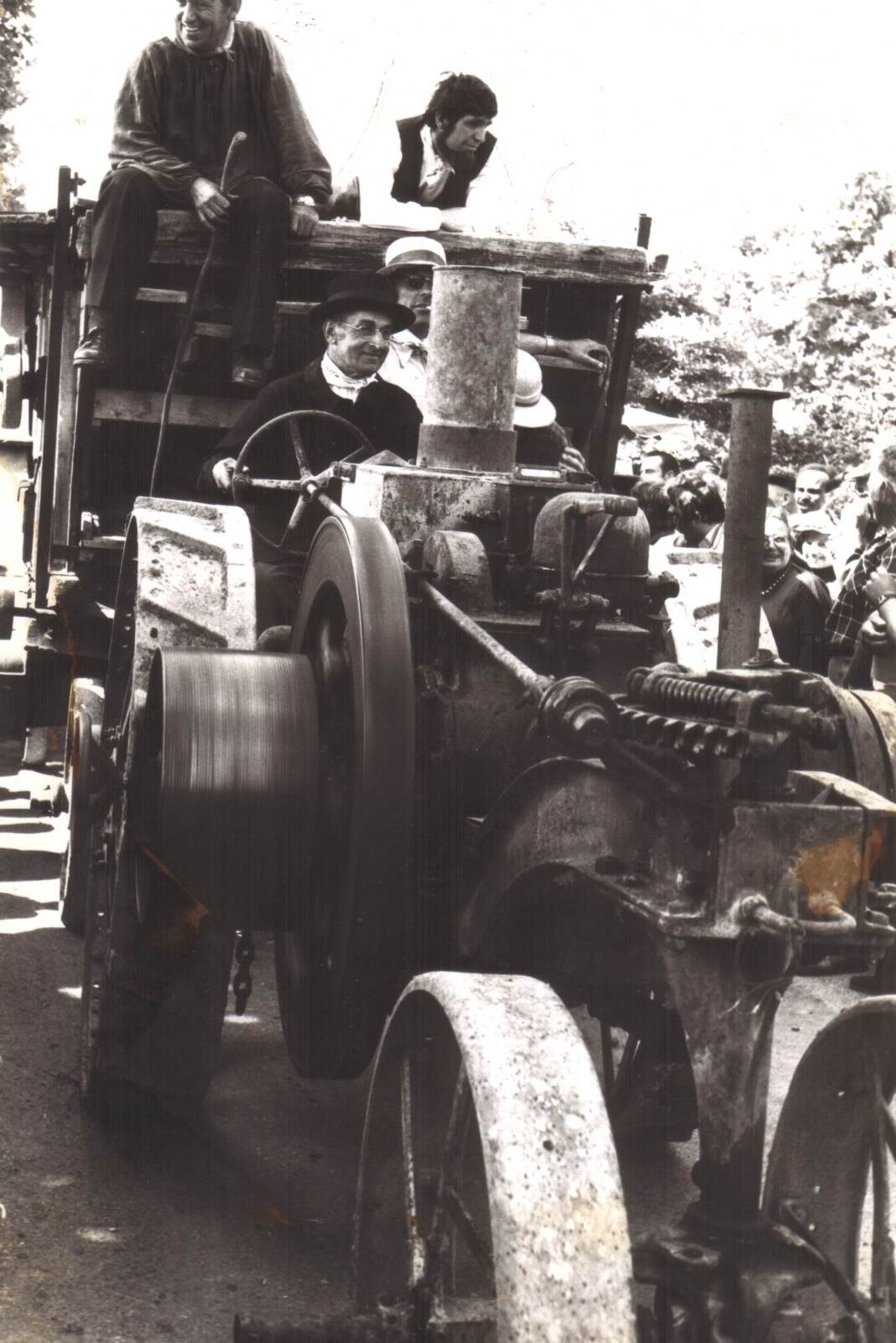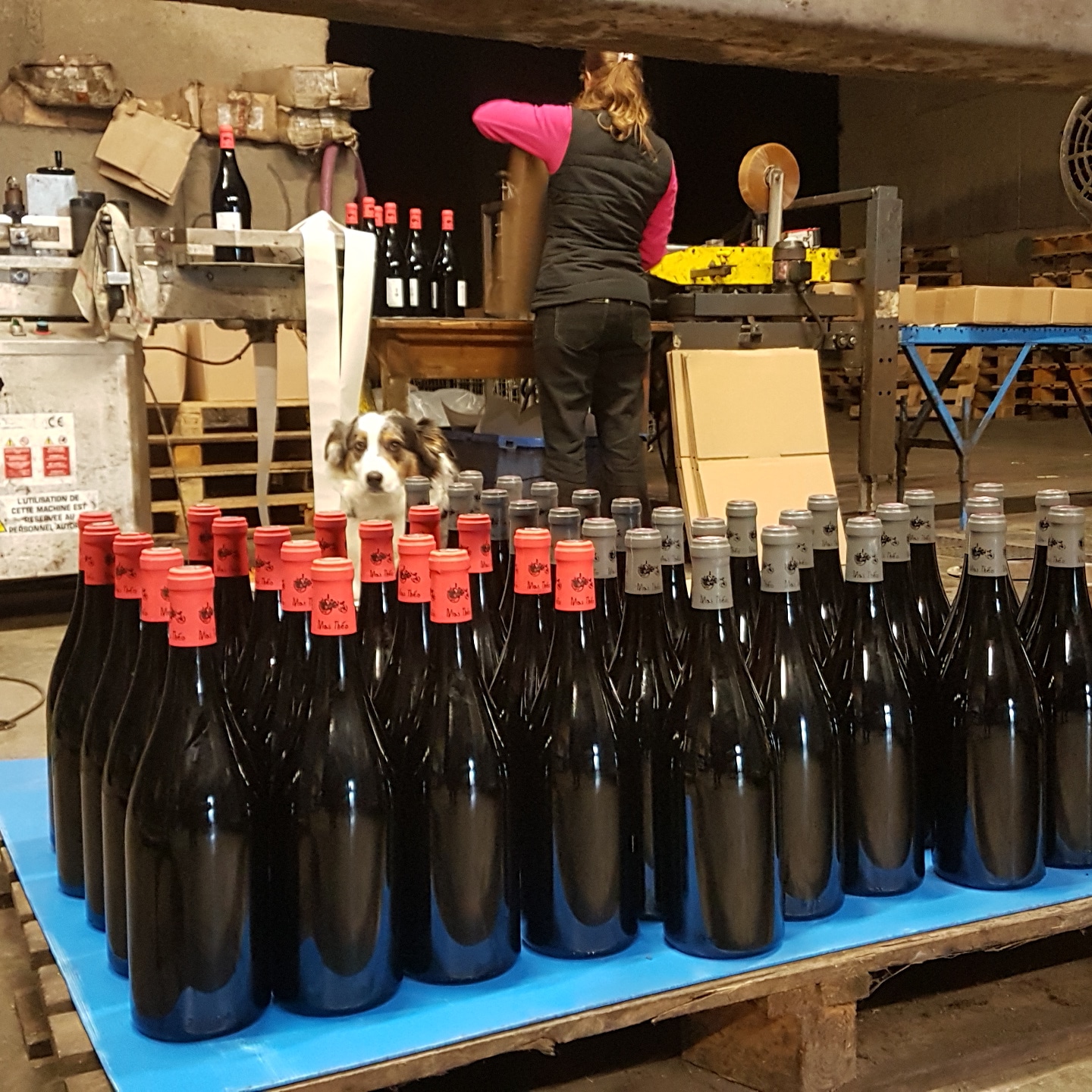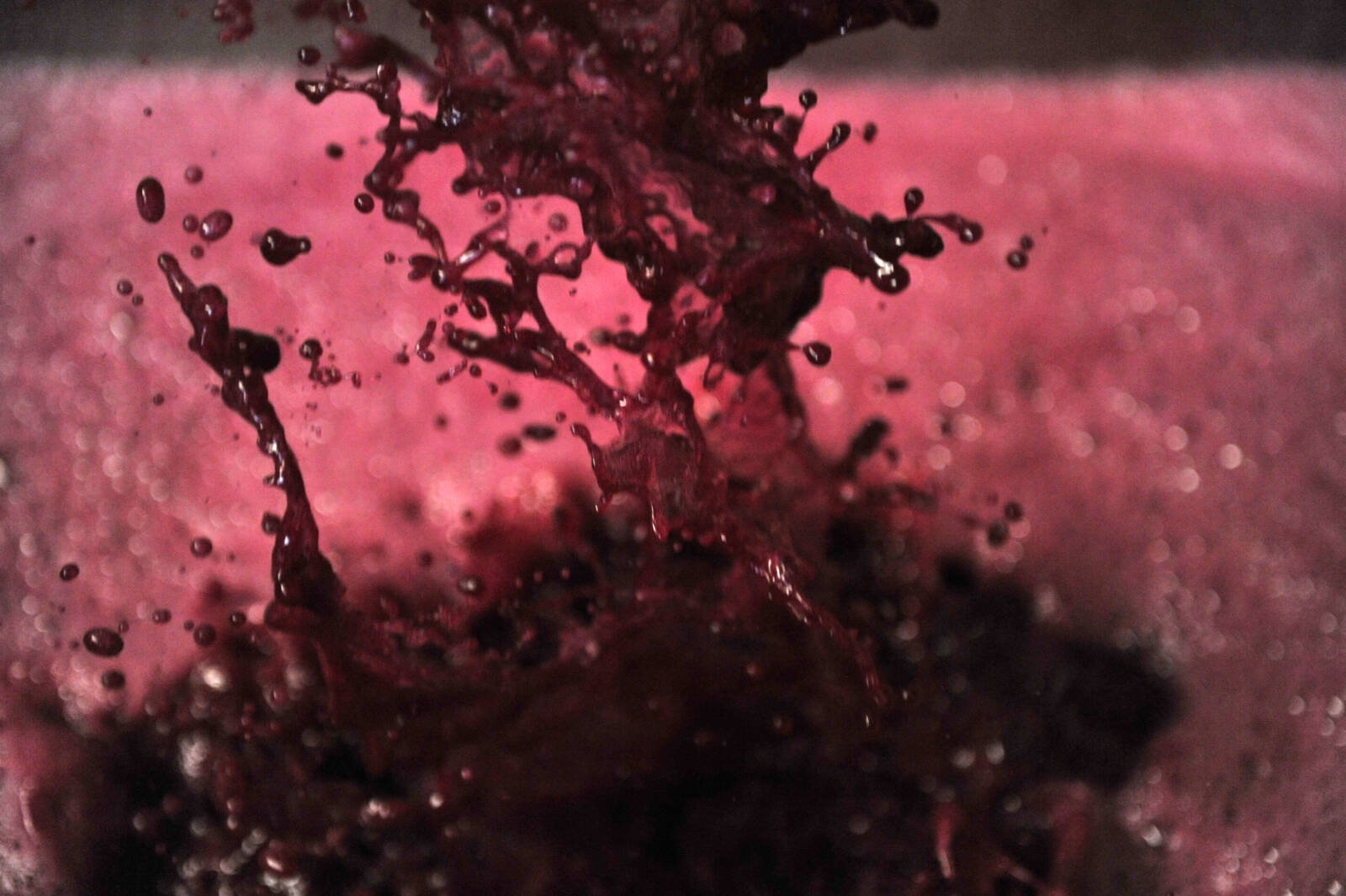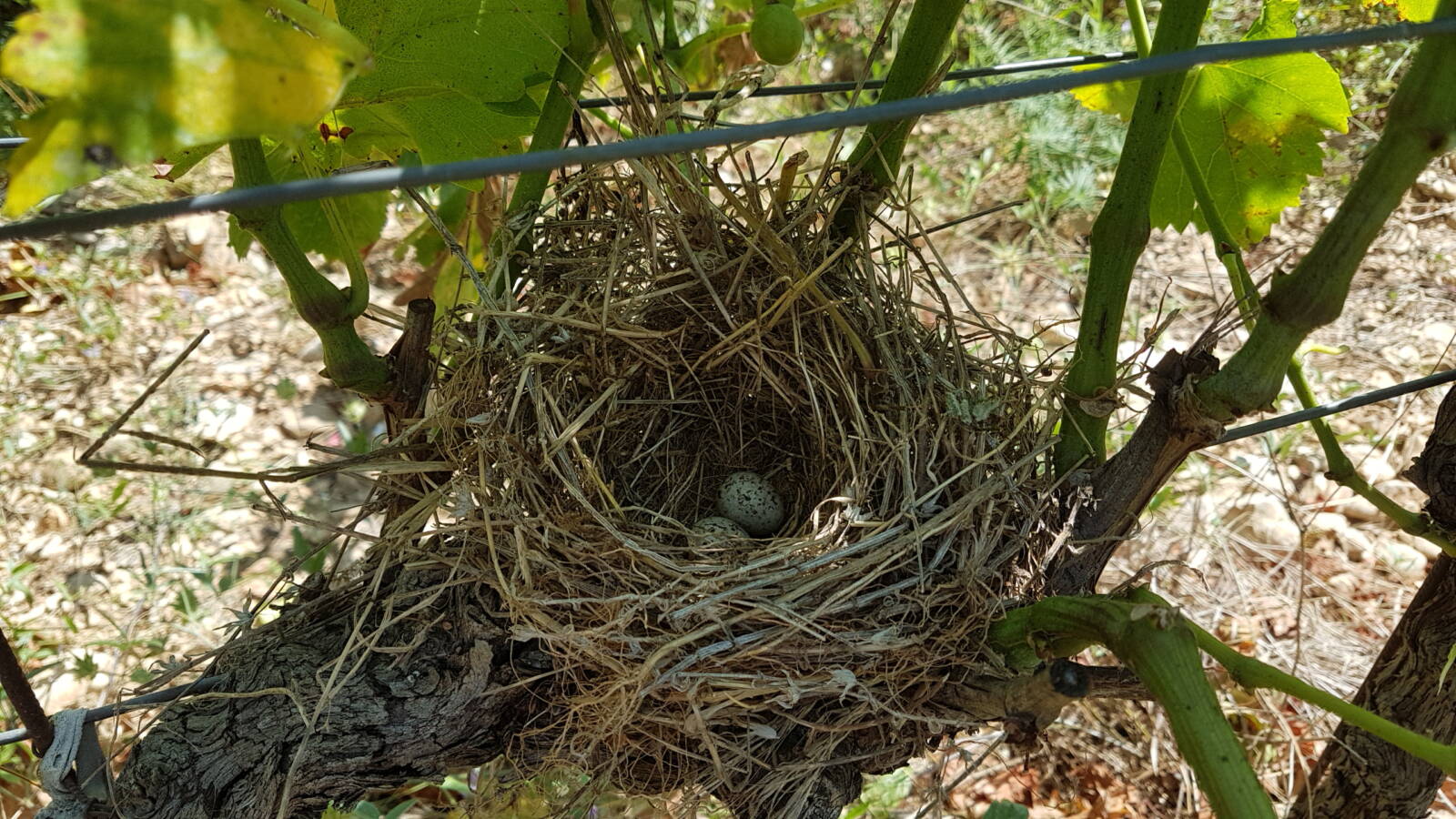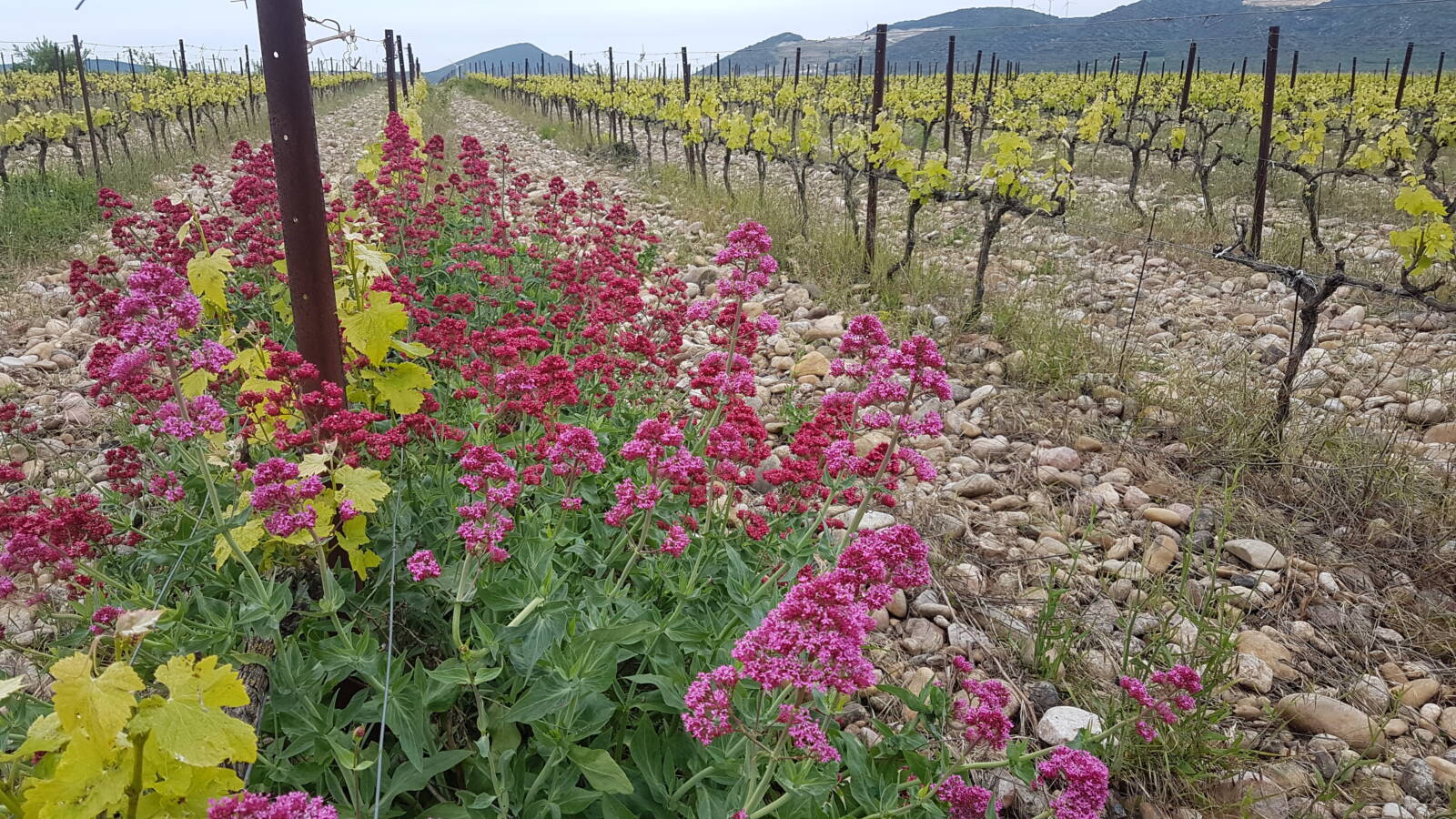Mas Théo – The farm
The family estate
The « Mas Theo » is the simplification of the family farm « Mas Theolas ». The village elders named it after the long lineage of this farming family.
This attachment to the family roots is symbolised by the estate’s logo, which represents the old tractor of Laurent Clapier’s great-grandfather.
Mas Théo is the regrouping of the inheritance of three family farms :
Théolas : sheep breeding, meadows and cereals, as well as a few vine stocks for family consumption
Clapier: vines and cereals with an additional activity as a distiller.
Bes: sheep breeding, cereals and vines.
Louis and Mireille Clapier, Laurent’s parents, when they took over these farms, stopped breeding to devote themselves to cereals, lavender and above all vineyards, whose grapes they delivered to the cooperative.
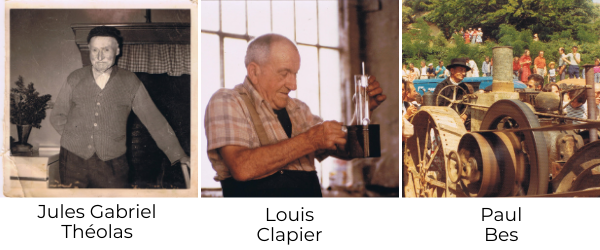
History of operations
1910 : creation of the farm by Jules Gabriel Théolas.
1959 : Marthe and Augusta Théolas take over the Théolas farm.
1968 : Louis and Mireille Clapier take over the Clapier farm.
1973 : Louis and Mireille Clapier take over the Théolas farm.
1983 : Louis and Mireille Clapier take over the Bes farm.
1999 : Laurent Clapier purchases 49 acres of vineyards.
2008 : Laurent Clapier takes over the Théolas-Clapier-Bes estate in addition to his 49 acres of vineyards.
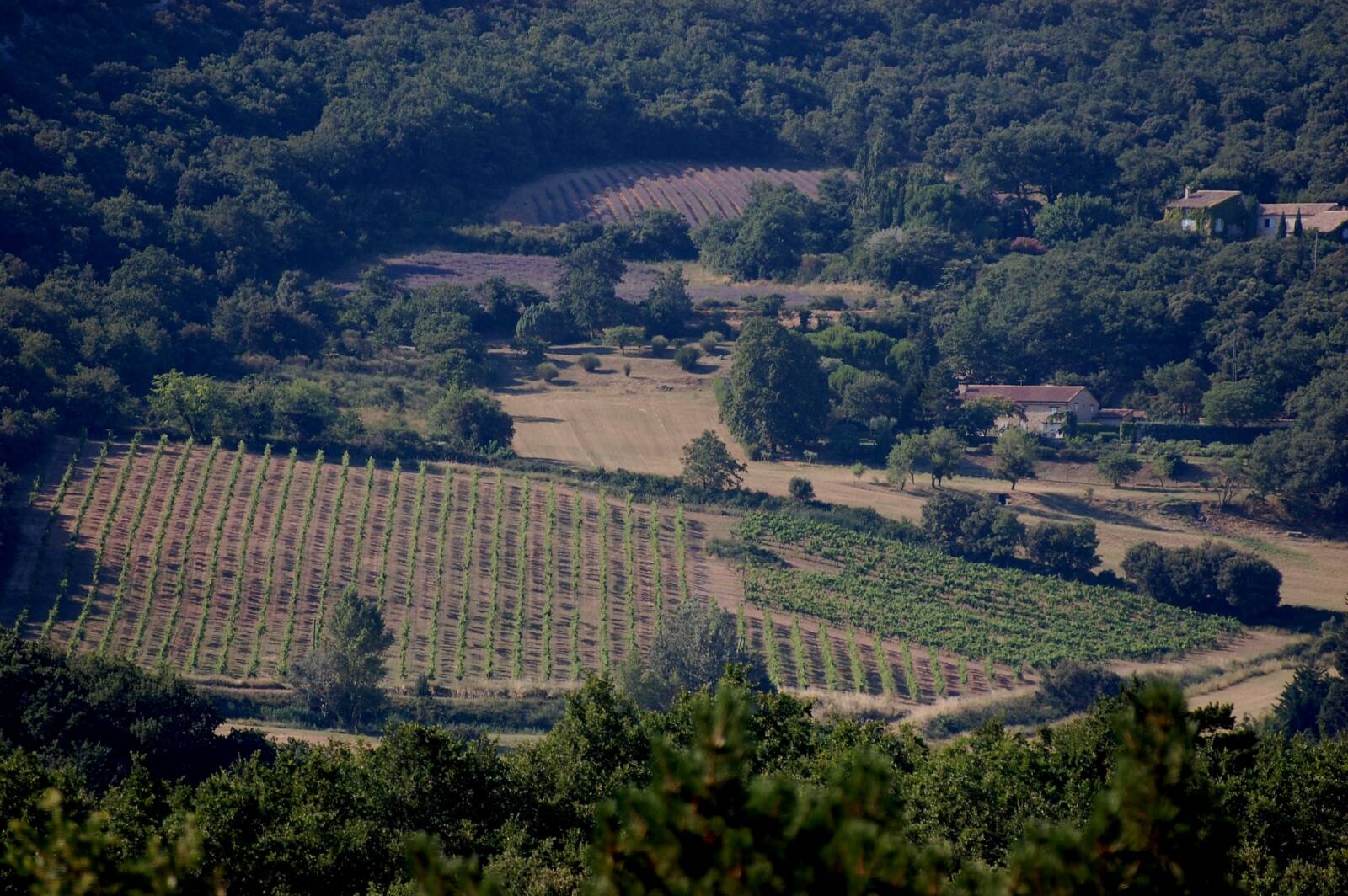
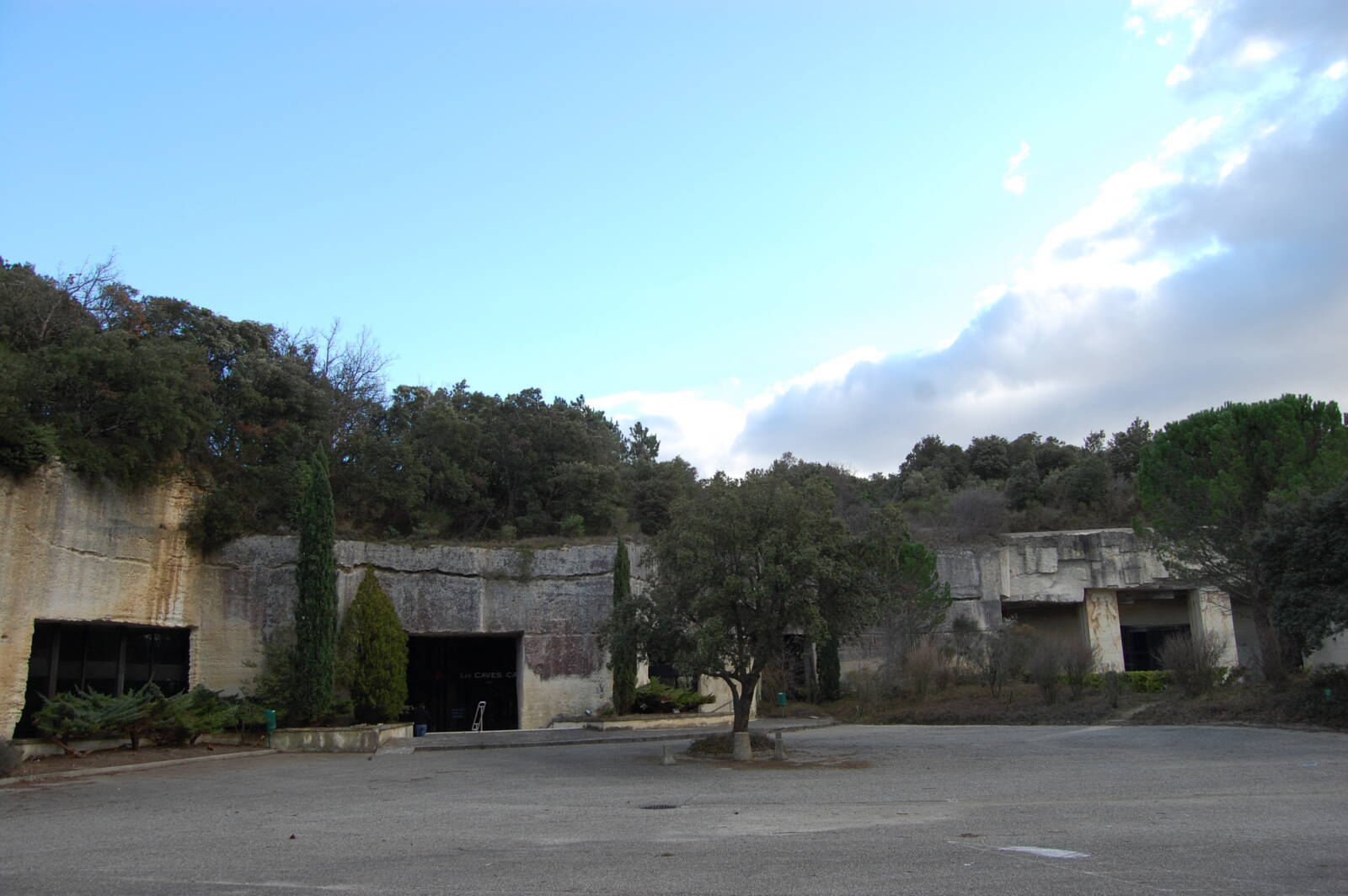
The Mas Théo : a constant evolution
1998 : Laurent Clapier obtained his diploma as a higher agricultural technician in oenological viticulture.
1999 : Laurent Clapier settles down with the acquisition of 49 acres of vineyards.
2001 : banning of chemicals from the vineyards.
2004 : certification in organic farming.
2005 : creation of the Mas Théo identity and start of marketing.
2007 : creation of an independent winemaking unit.
2008 : takeover of the family farm, bringing together the inheritance of the three farming families.
2011 : acquisition of the Caves Cathédrales to install the winery.
2012 : acquisition of the Caves Cathédrales to install the winery.
2016 : evolution towards a Nature methodology.
Since 2012, the estate has been organised on two different sites: the Mas Théolas in Roussas with all the agricultural equipment and the Caves Cathédrales in St Restitut for the cellar equipment.
The Mas Théo : a diversity of terroirs
The Mas Théo farm extends over 173 acres of various crops between Roussas and St Restitut in the heart of the Drôme Provençale.
Five terroirs make up the property:
Roussas (81 acres 55)
- Stony clay and limestone.
- Drying soil.
- Soils with brownish clay, even a little ochre, with limestone lapping of alluvial origin, as well as deep layers of more or less pure clay.
- Suitable for the expression of red wines with black fruits, great colour and tannic intensity, without losing elegance.
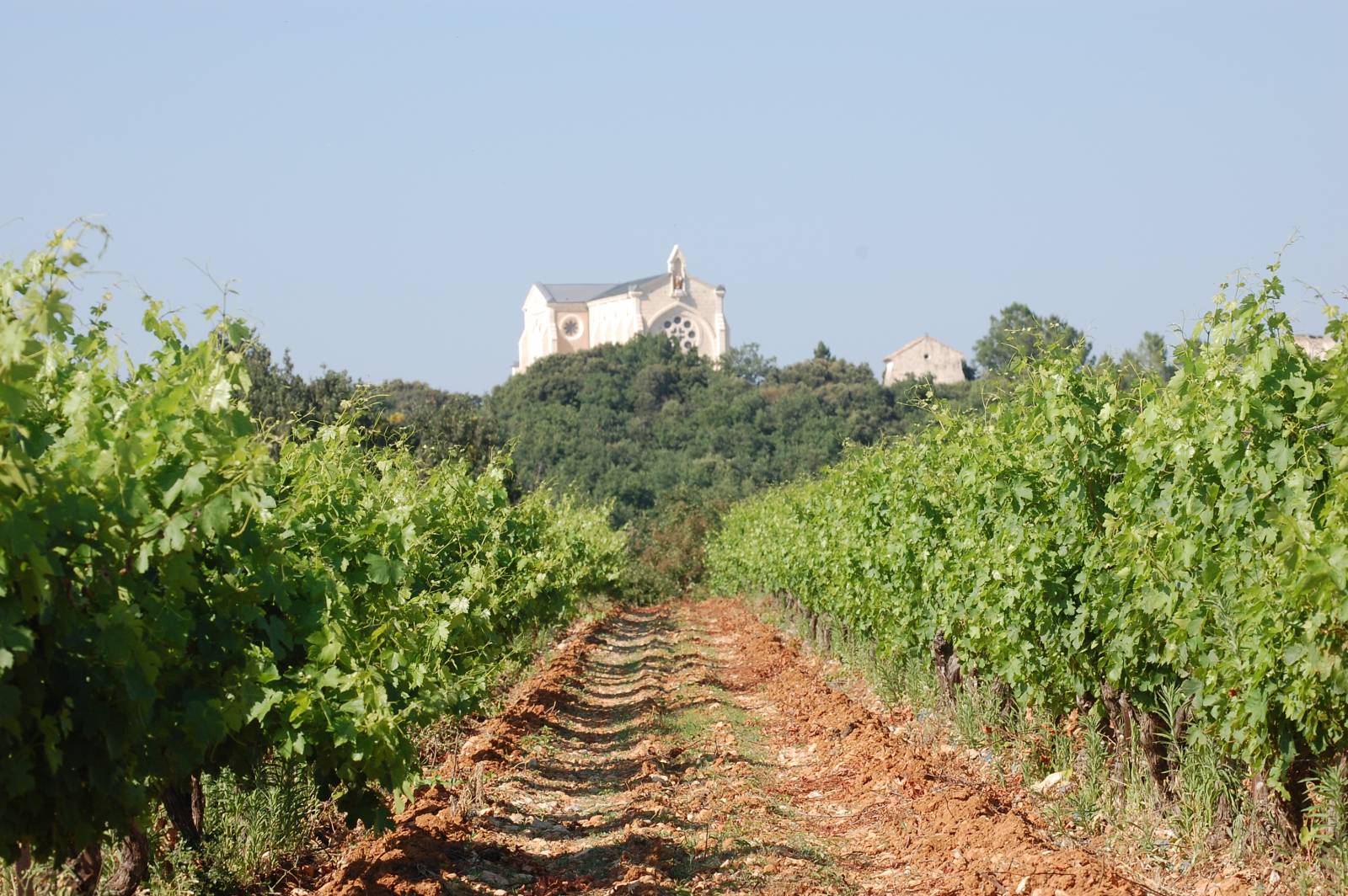
Valaurie (2 acres 47)
- Clay and limestone with rocky dominance.
- Cold soil.
- Slightly loamy soil, studded with white stones of varying hardness, with filtering properties.
- Suitable for the production of round, fresh and aromatic white wines.
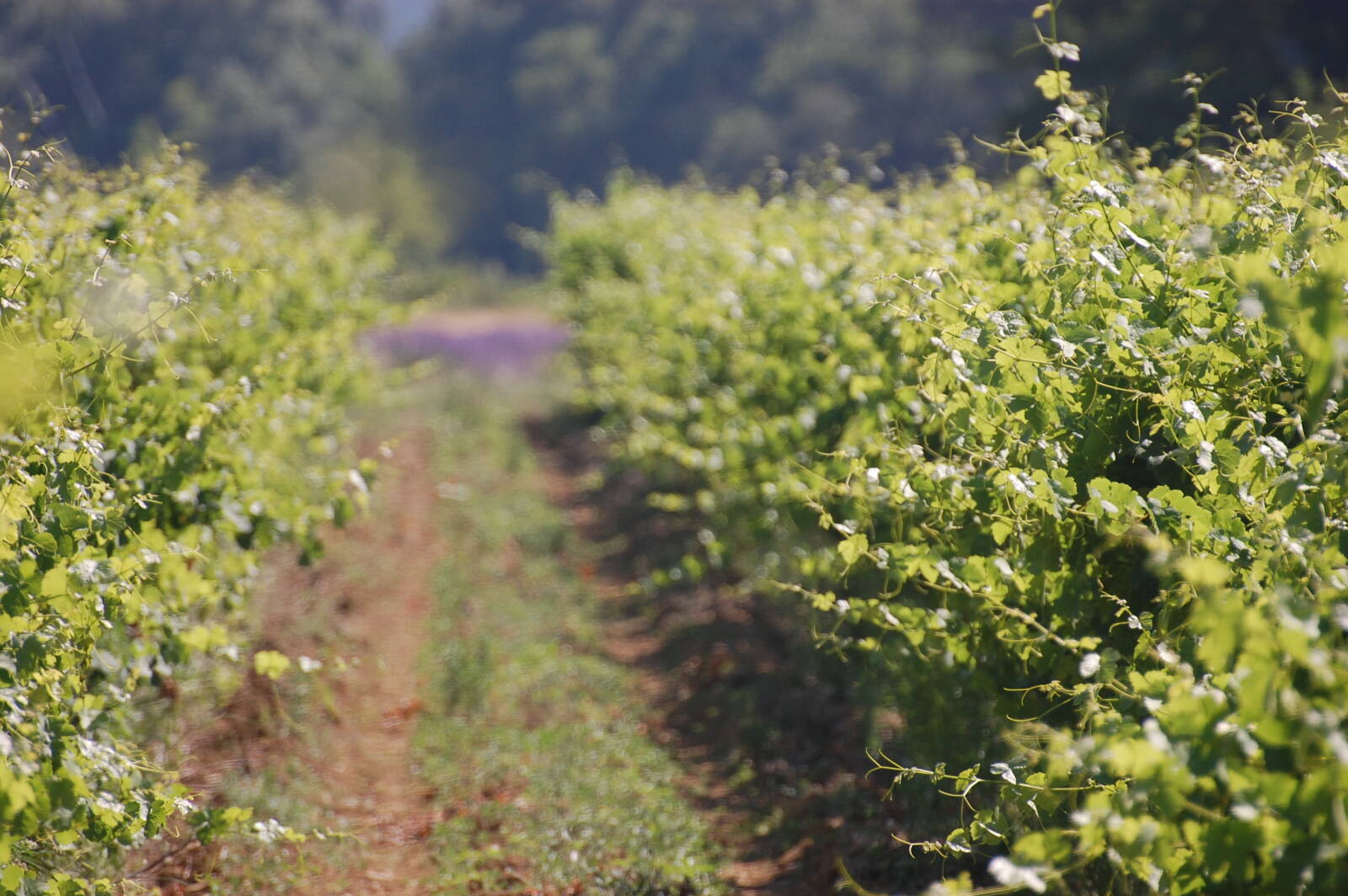
La Garde Adhémar (17 acres 30)
- Clay and limestone silt.
- Late and rich terroir.
- Rather ochre-coloured soil, scattered with white stones that are often crumbly. Not necessarily conducive to quality wines, this terroir is devoted to other crops.
- Not necessarily conducive to quality wines, this terroir is devoted to other crops.
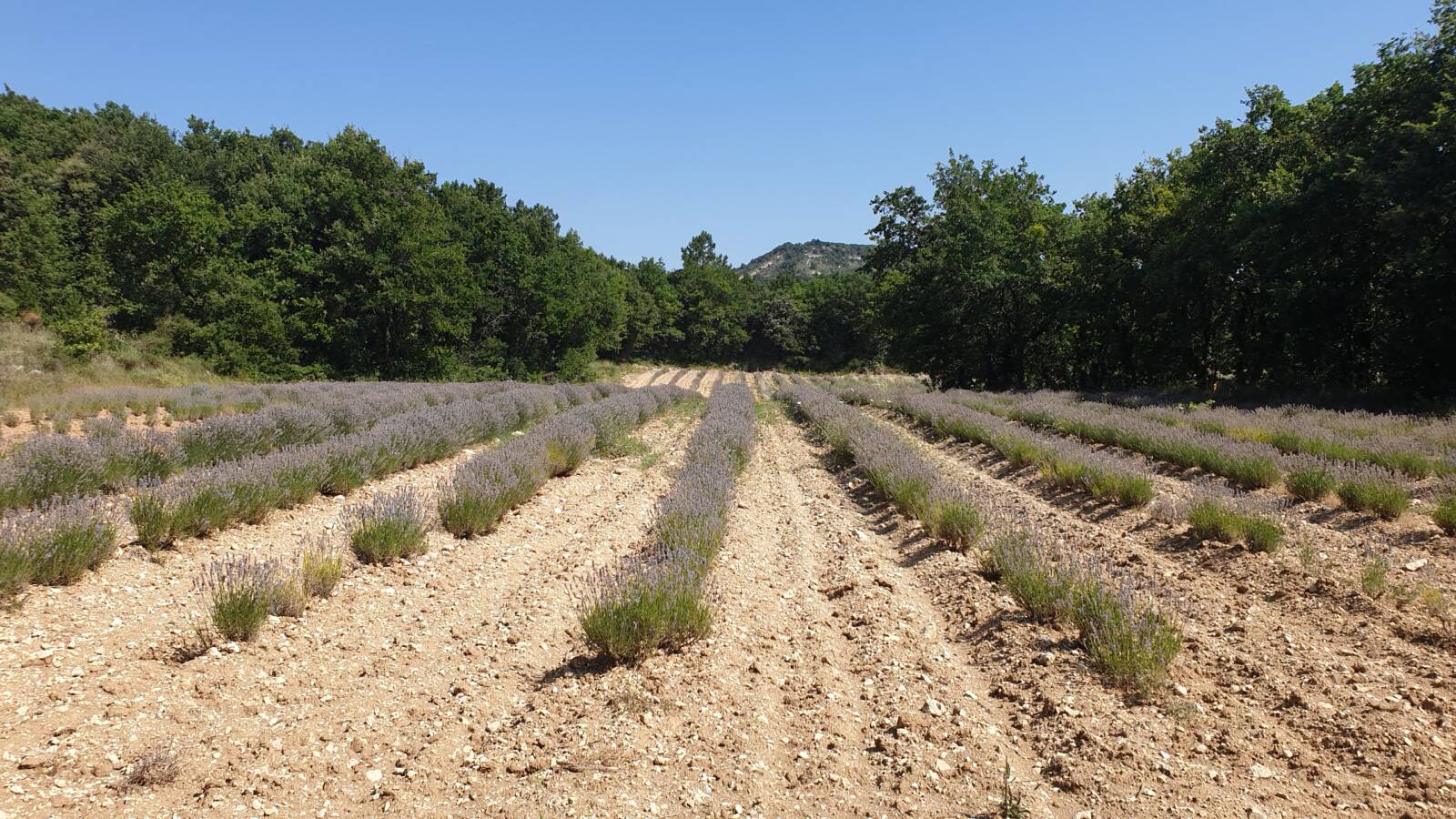
St Restitut (22 acres 24)
- Clay and sand.
- Early soil.
- Clear soil, sometimes with brown clay on the surface. Extremely porous and filtering, the sand allows water to pass through before retaining it in deeper layers and then releasing it again. These soils, thin in appearance, are therefore richer and more balanced than one might imagine.
- They are conducive to the expression of white wines with an intense fruity and sunny flavour.
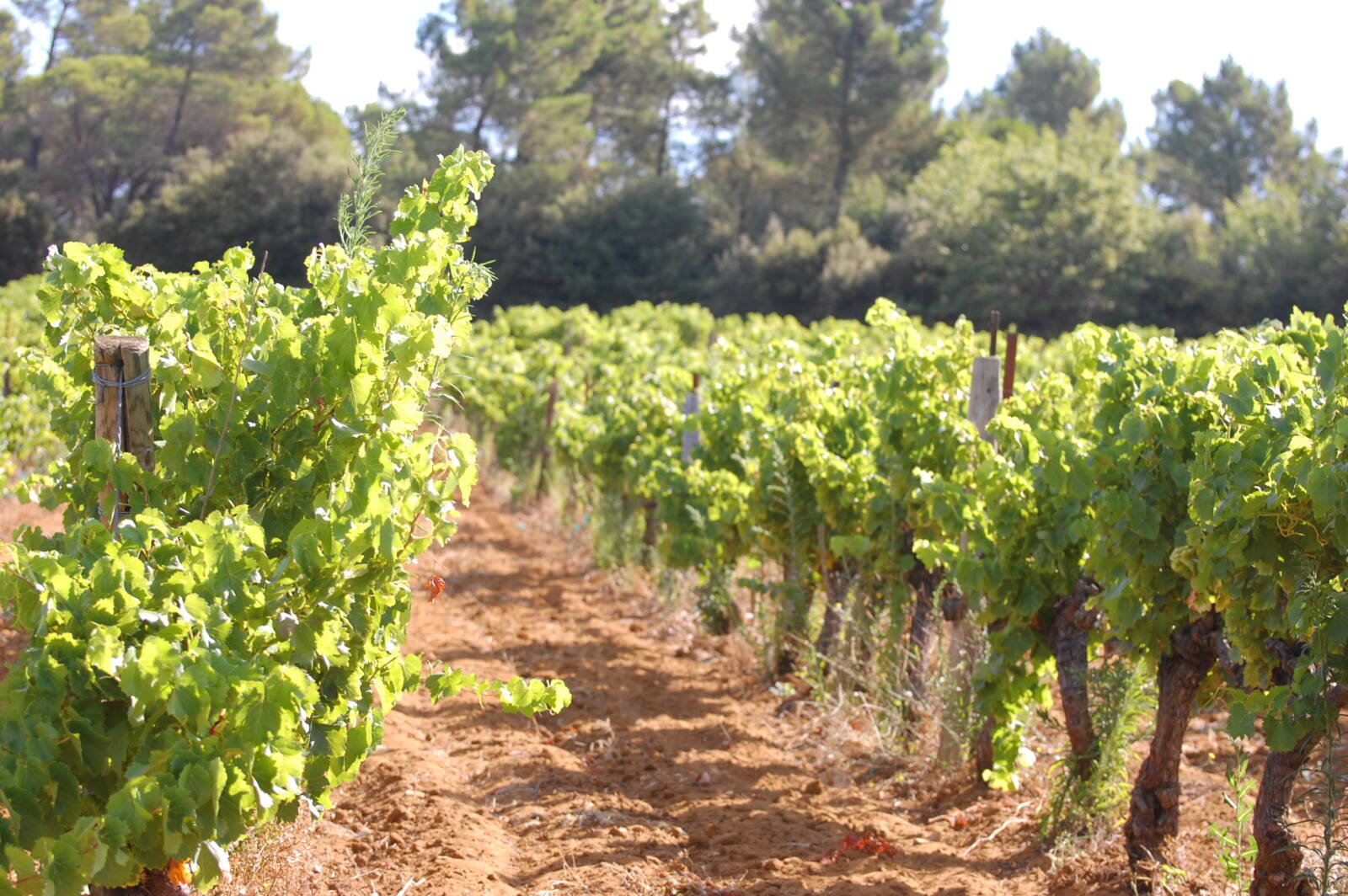
Les Granges Gontardes (44 acres 48)
- Rolled pebbles with ochre clay in depth.
- Early soil and strong maturity
- Round, smooth stones, polished by the waters of the Rhône in the quaternary era. One wonders how the vine can survive in an almost lunar setting, heated by the sun, even at night the pebbles reflect the heat.
- This is conducive to the production of structured, racy wines, developing aromas of scrubland and spices.
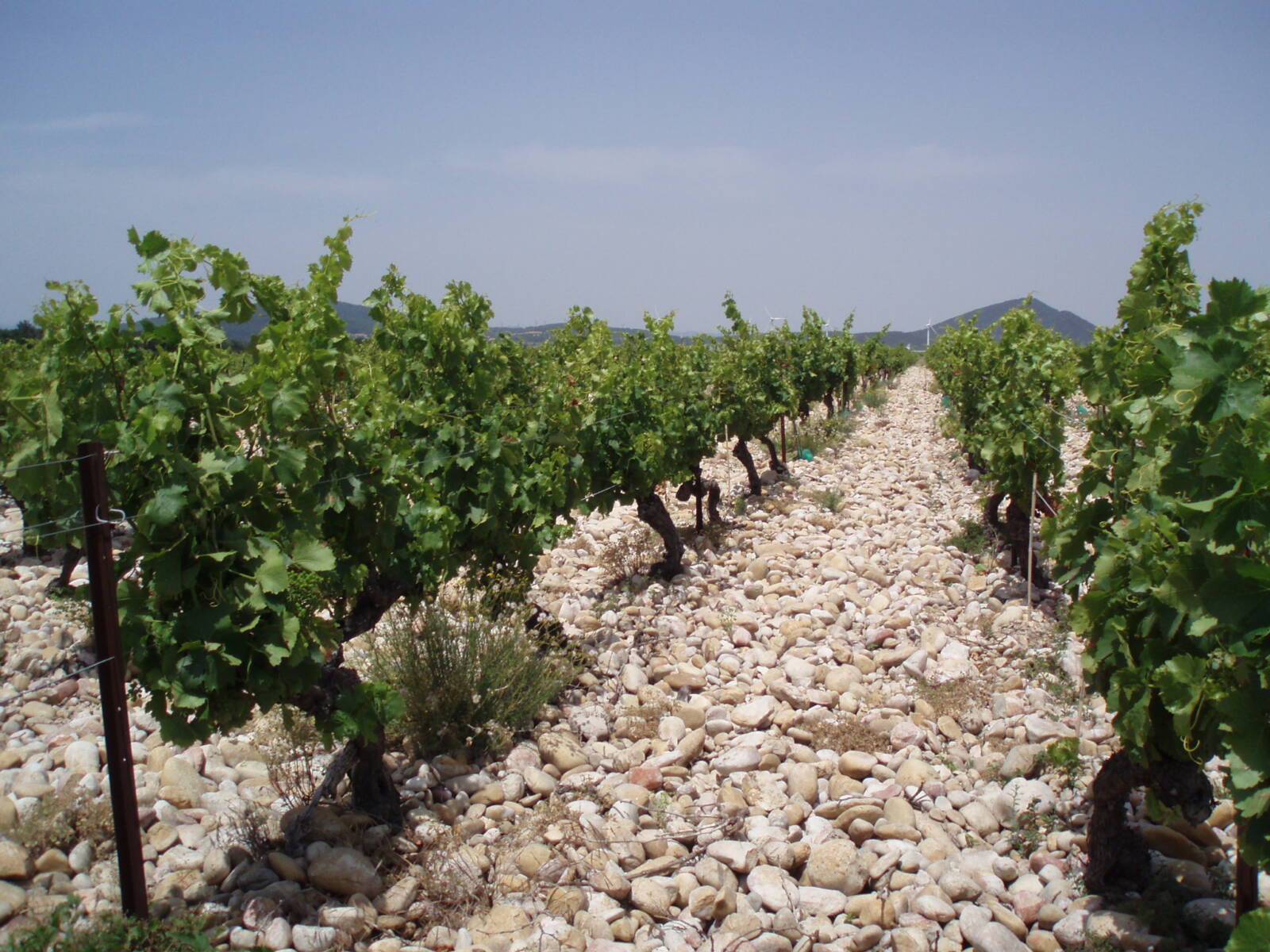
The Mas Théo : a diversity of cultures
The heritage of a diversified family plot of land has enabled Laurent Clapier to pursue this philosophy initiated by his elders: polyculture.
It is in this spirit that he cultivates 77 acres of vines, 42 acres of aromatic plants such as lavender, 54 acres of meadows, as well as a few acres of olive trees and truffle oaks.
Even if the vineyard only represents barely half of the family estate’s surface area, it occupies a preponderant part of the estate’s activity.
The grape varieties in the vineyard remain on a traditional and typical profile of the Rhône valley.
As some terroirs are not suitable for vines, these plots are cultivated, among others, on meadows, as Laurent Clapier’s grandparents did. The few sheep present on the farm take advantage of this. But the hay harvest has above all enabled a partnership to be created with cow breeders to exchange this hay for their manure. Manuring the soil is an important point for its vitality in biodynamics.
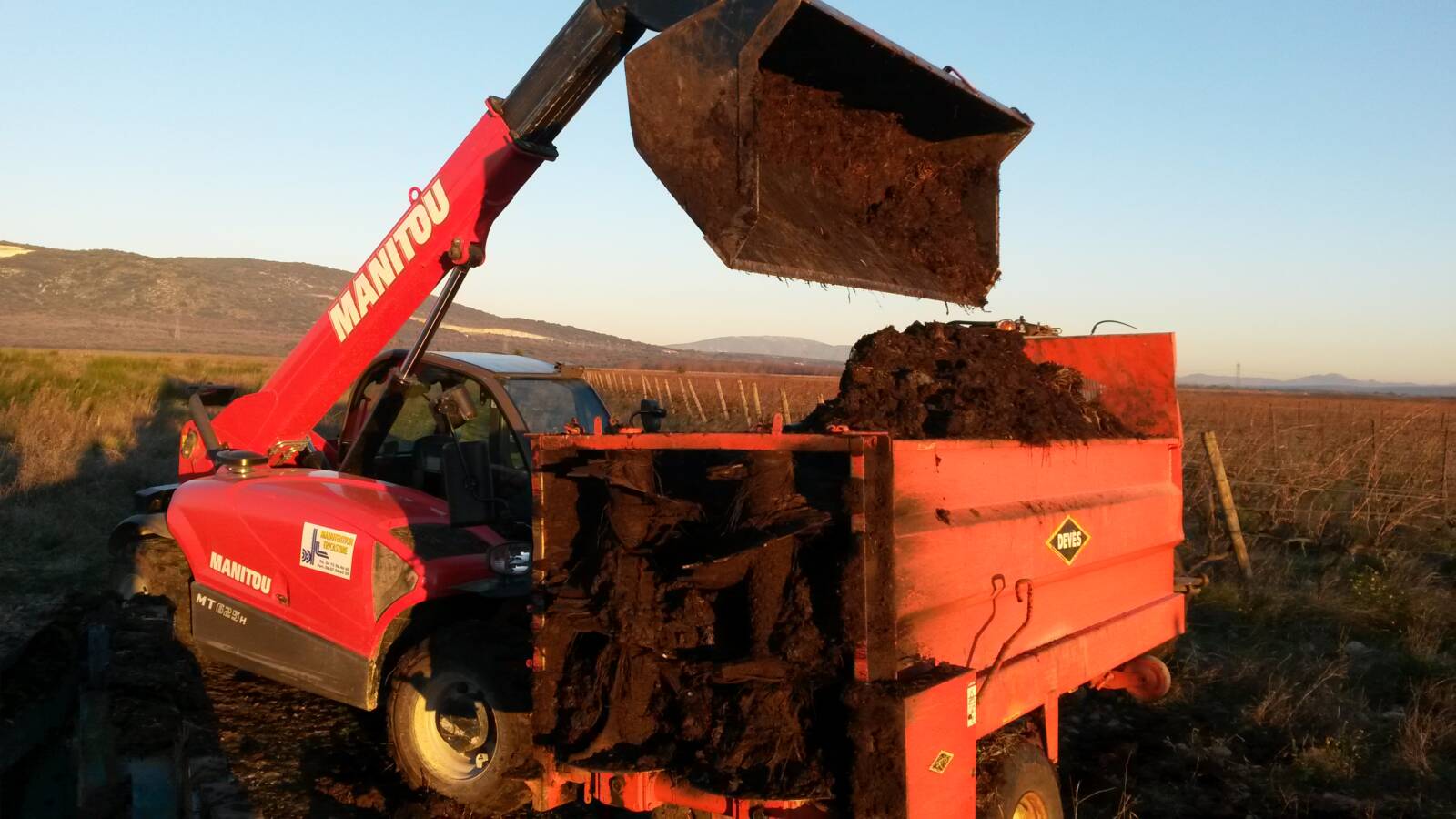
The rest of the plots are cultivated with aromatic plants typical of the Drôme Provençale: fine lavender and lavandin.
These plants are cultivated for their flowers in order to distil them and extract essential oils for aromatherapy, cosmetics and perfumery.
This diversity of cultures makes it possible to spread the activities specific to each one over different periods throughout the year.
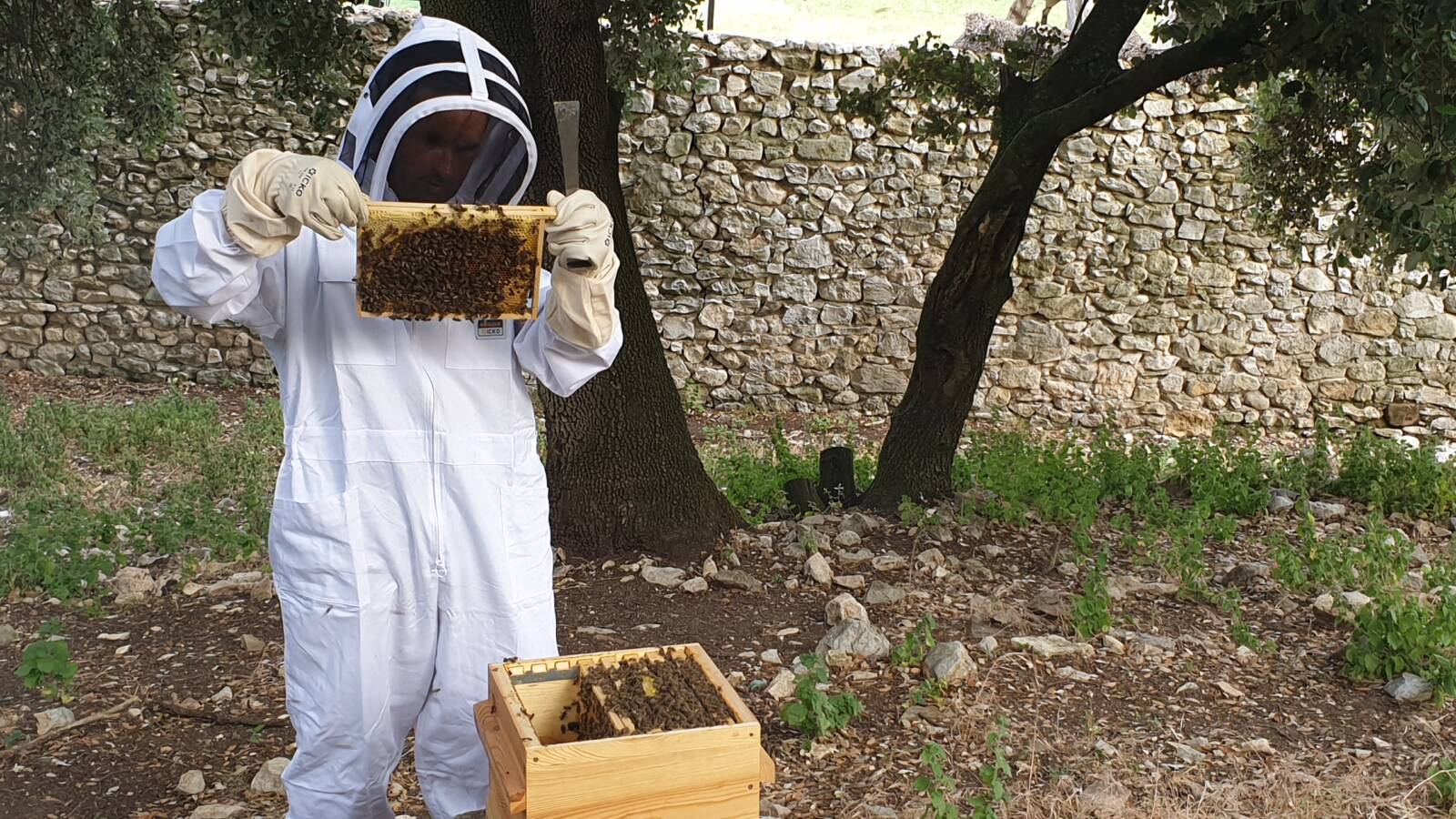
Moreover, this distribution allows us to remain on an artisanal and family-run organisation, as opposed to a farm where the 173 acres would be entirely planted with vines.
This configuration would require much more labour and time, and would no longer be the vision of being close to the land and the fruits it has to offer.
The Mas Théo: a whole philosophy
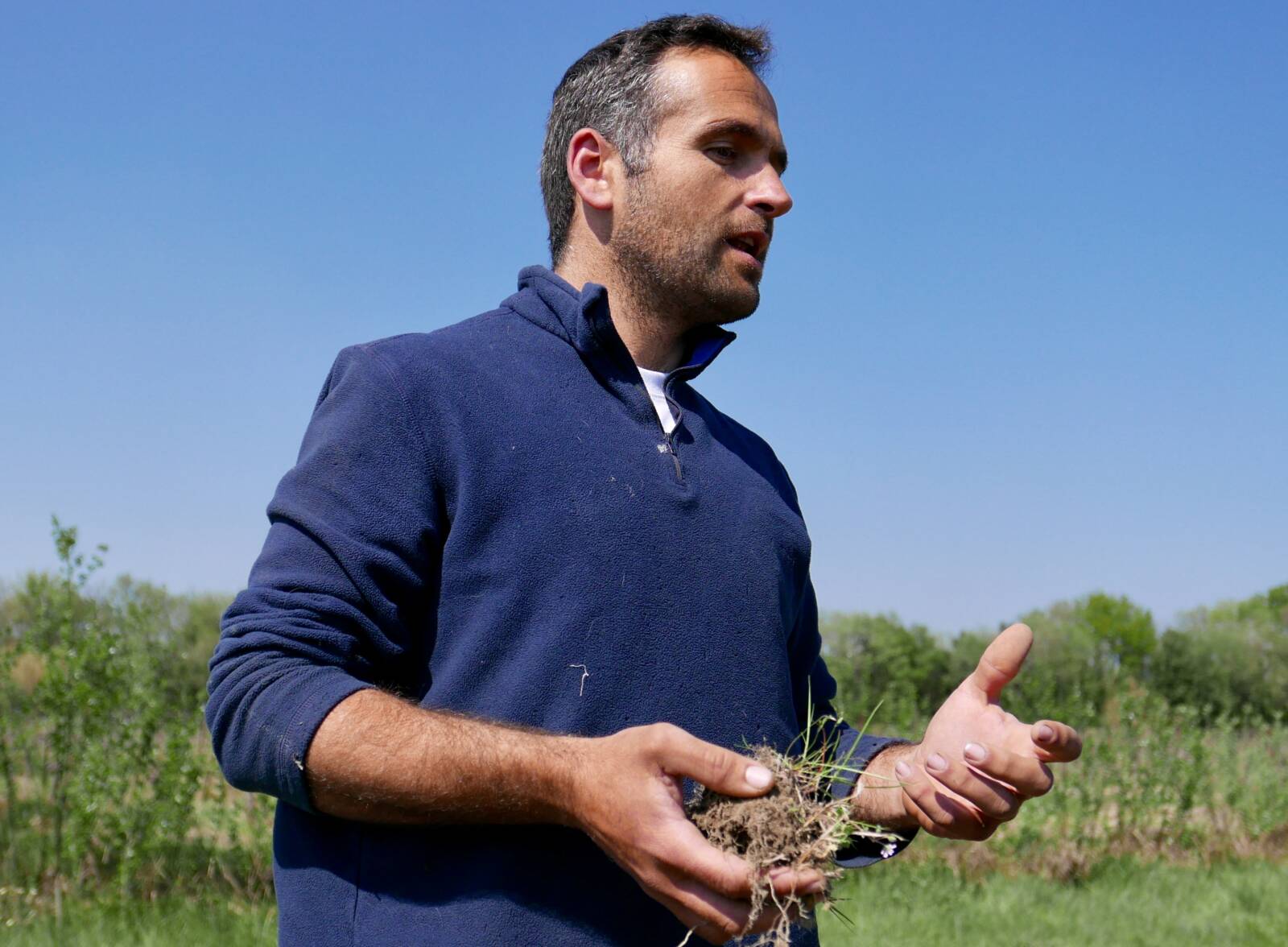
« For me, biodynamics is the natural consequence of a personal reflection on the sustainable management of my farm. The biodynamic approach is an extension of organic farming which guides me towards a better understanding of living things. It brings me closer to my grandfather’s land; his farming work was guided by common sense, which was nothing more than observation.
Today, I see and experience my vineyard differently.The observations I make on my farm: a living vineyard, expressive wines, encourage me to develop this philosophy. »
Laurent Clapier.
For all the practices carried out on the estate, from the soil root to the grape, from the vine stock to the bottle of wine, from the cultivated parcel to the Caves Cathédrales inside the mountain, Laurent Clapier wanted to apply the same philosophy where the living is brought to light.
He wanted to develop sustainable practices such as biodynamics, which reinforces the life of the plant, and which gives the wines a more expressive and distinctive identity.
By moving to the Caves Cathédrales in 2012, he was able to continue and improve his work in a natural and peaceful place. This has allowed him to evolve towards more natural and lively wines, where the only ingredients used to make wine are grapes and nothing else.
The work in the cellar is quite minimalist, simply to accompany a natural process and highlight the grapes that mirror their terroir.
Since Mas Théo moved into the Caves Cathédrales, the entire winemaking process, from the grapes received to the packaged and labelled bottles, is carried out on site with its own equipment in order to be independent and self-sufficient. The objective is to be able to carry out the different operations at the right time, in accordance with the requirements of the wines, but also following the lunar and planetary calendar.
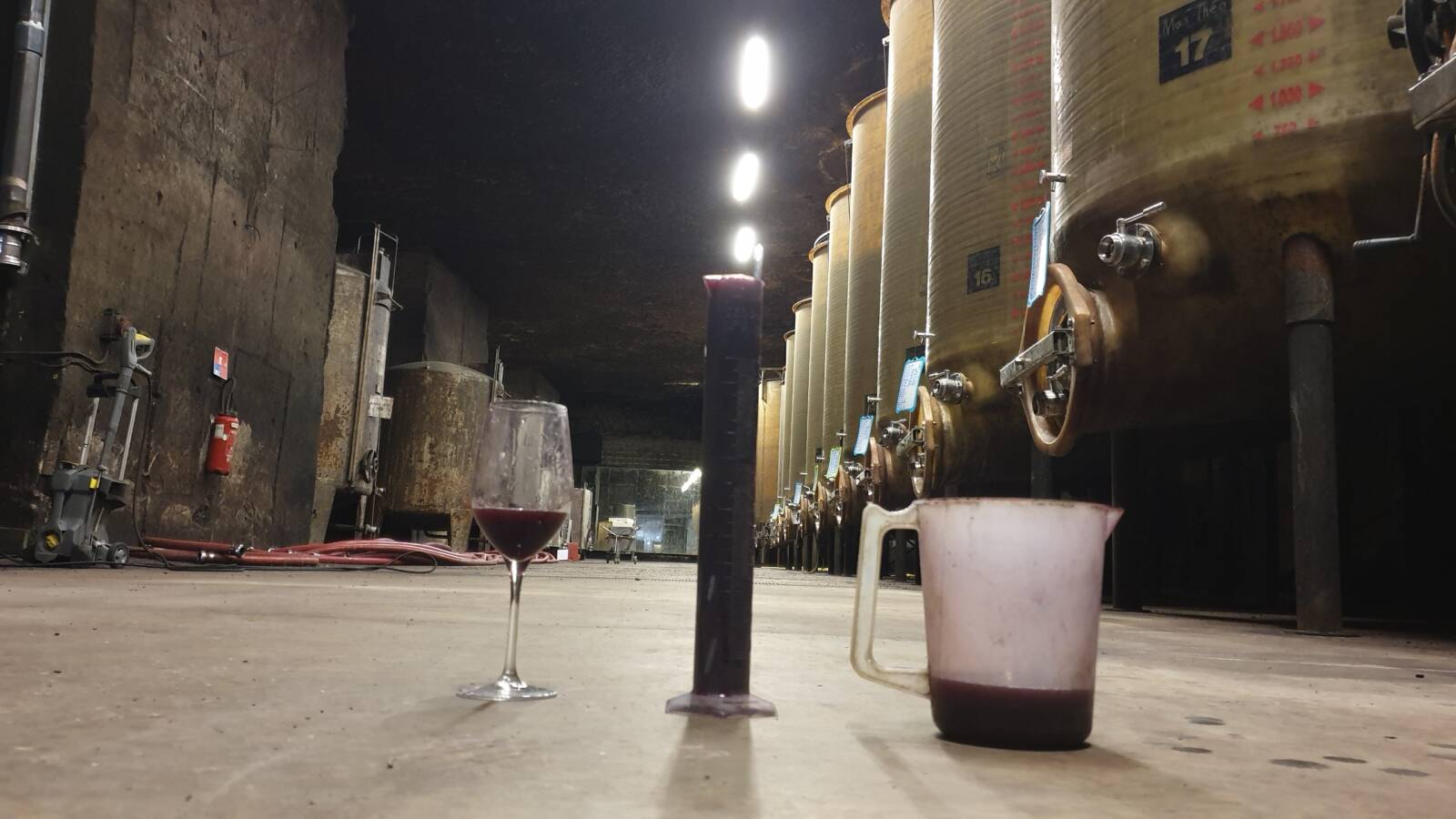
The atmosphere of the Caves Cathédrales, rather cold at 57°F, but regular throughout the year, makes it possible to manage the wines without preservative.
These natural wines are, in fact, peaceful because they are not subject to thermal shocks, which are precursors to ageing.
Laurent Clapier keeps in mind the advice of a fellow biodynamic winegrower. He had advised him, in order to achieve his goal of wines of excellence, to work miracles in the vineyard instead of foolishness in the cellar. In all of this we find the doctrine of natural wines that Mas Théo strives to apply.
The evolution of Mas Théo has been gradual over the years, with the aim of establishing the management of the farm as a living and autonomous organism.
It is in this vision that in the last few years, around the farmhouse of Mas Théolas, a few sheep and lambs have appeared, as well as beehives to energize all this living world.
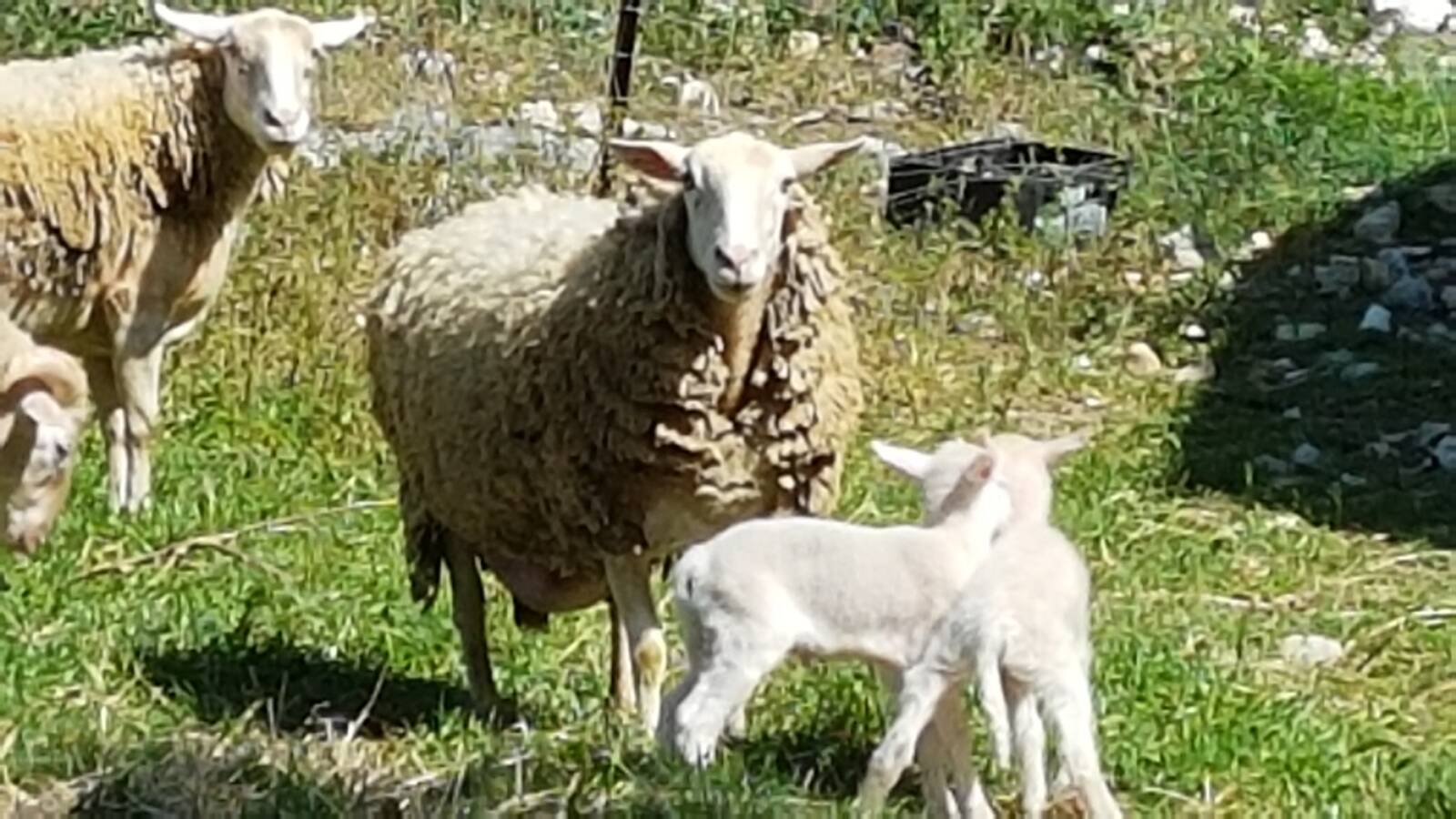
Mas Théo and organic farming
Mas Théo strives to produce in a natural way, with respect for the land and the animals, banning all methods that are potentially harmful to the environment and human health.
All this is also done to respect the natural cycles of the vine.
The estate has a knowhow of more than 20 years which follows several production principles :
- Protecting the environment and reducing pollution.
- Promote good plant health and optimise productivity.
- Minimise soil degradation and erosion.
- Maintain long-term soil fertility.
- Maintain biological diversity within the ecosystem.
- Recycle materials and resources as much as possible on-farm.
- Rely on renewable resources in locally organised farming systems.
- Prepare organic products with careful attention to processing and handling methods so that the biological integrity and essential qualities of the product are maintained at all stages of production.
Biodiversity in the vineyard is a major issue. The vine is at the heart of a biotope that must be maintained and fostered.
This environment is a set of life forms made up of flora, fauna and fungi (mushrooms).
Mas Théo takes the greatest care to preserve this balance, by working the soil on a regular basis and preserving the hedges that shelter the flora and fauna.
This biotope to be preserved includes bees, earthworms, wooded areas and grassing.
The richness of the biodiversity present in the vineyard increases the vine’s natural defence capacities against diseases and climatic hazards.
Mas Théo and biodynamics
Mas Théo has chosen to cultivate its vineyard in Biodynamics.
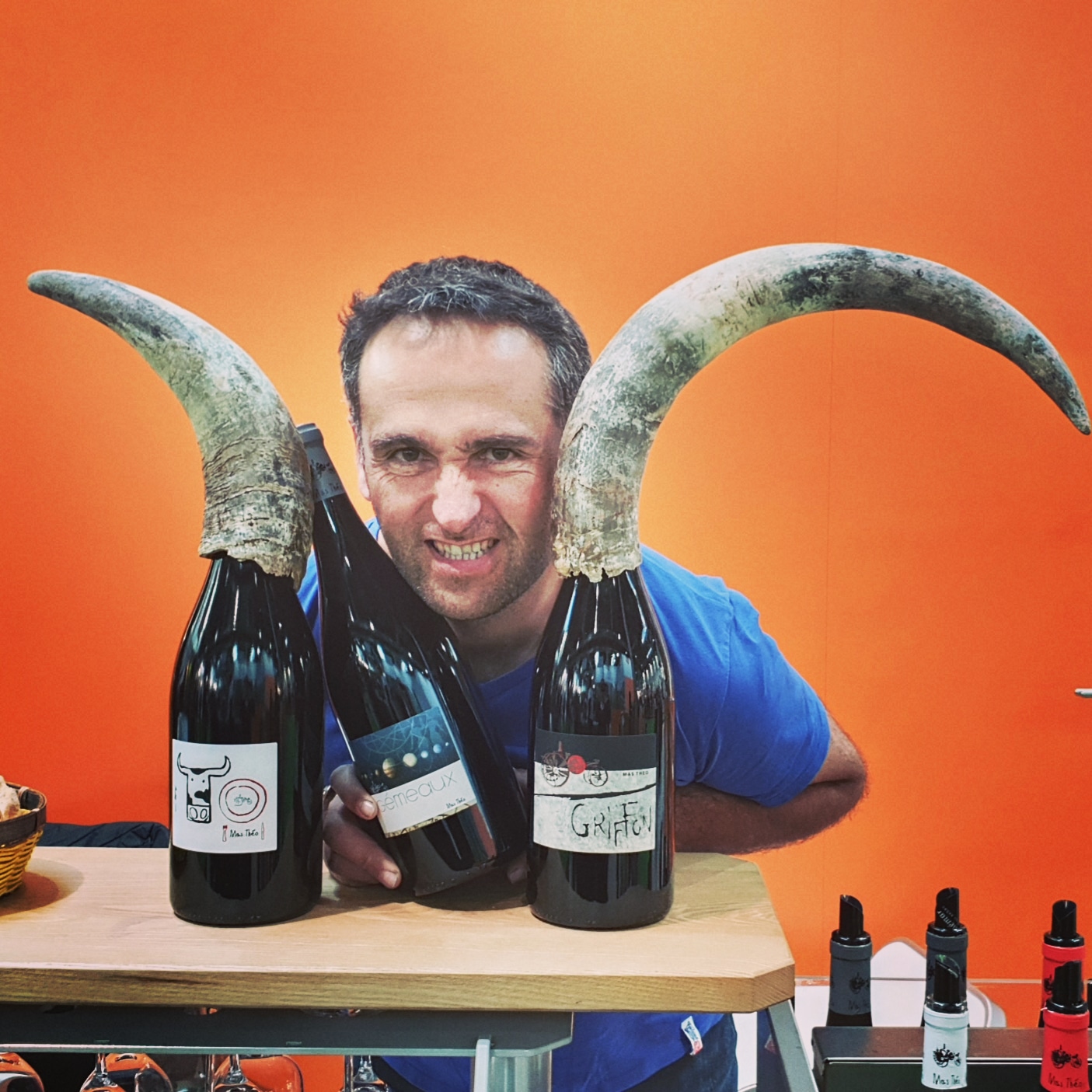
Biodynamic wines shake up our standards
The biodynamic grapes reflect the vitality of the vines and are the basis for the quality of the biodynamic wines. In the cellar, the biodynamic winegrowers let nature express itself, with as little intervention as possible. It is the yeasts present in the vineyard that guide the fermentation.
The wine then evolves to reveal its own unique characteristics that will set it apart from all the others. Biodynamic wines express the balance and typicity of their terroir. They bring out the complexity and aromatic intensity with mineral notes that remind us of their link to the land.
They are also more digestible and balanced wines and are becoming more and more popular.

